I picked up my brand new cross bike on Friday and while chatting with my friend who works at the bike shop, another man came in and started wandering around. My friend called the man over and introduced us, said we should know each other because we're both cyclists in Calgary and anyone who lives in Calgary knows that despite there being 1.3M people in Calgary, it's actually a really, really small city.
I chatted with the new guy I met, him telling me he's done quite a few cross races, cycling races, etc. We fell into an easy conversation that people bonded through a similar interests do, sharing races and experiences. Our conversation morphed into me shamelessly asking for gravel riding advice. I told him I was racing Dirty Kanza in June and he paused for a long beat before he spoke next.
"I'm curious to know," he said slowly, measuring his words, "what would possess you, never having done a cross race or gravel race before to go out and decide to race the single hardest one?"
I couldn't help but laugh. It's a fair question, I told him. For just a moment I am catapulted backwards in time to August of 2015.
It's the long weekend of August and Jon and I are going on a canoe backcountry camping trip. We are doing this despite the fact I have never before been in a canoe (how decidedly un-Canadian of me), despite the fact we only know 2 of 8 people attending this adventure, despite the fact we are clueless to the place we are going, the distance we will be covering in the water, the gear we will need and what exactly lay ahead for the days. We pack our backcountry set up like we were going to be on foot - plus a few extra garbage bags- and take off.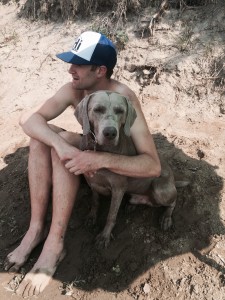
We hadn't planned for 60km of paddling, for the gruelling, taxing chore of hauling our gear as well as our 65-pound Weimaraner who was terrified of the water and yet continued to get dunked in, thusly requiring one of us to rescue him, the difficulty of the scorching days on the water combined with our utter, complete and total inexperience. We arrived at our camping stop as the sun fell at 9pm the first evening, angry, hungry and utterly frustrated with one another. We cooked rice and beans, drank beer with the people we paddled with, passed out late that night and hoped for better luck the next day.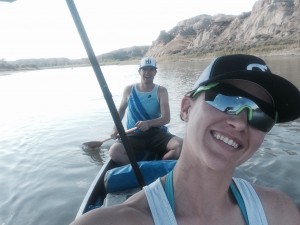
We did have better luck the next day. We figured it out. We figured out how to balance the canoe with our gear under us, how to hold the paddle to avoid the blisters that formed early on, we figured out how to stash food and water so it was easy to reach. We figured out where to position the dog so he wouldn't involuntarily go swimming, we figured out how to communicate with each other on what we needed to balance the boat, position ourselves and paddle accordingly. Night two of our trip and I sit on the edge of the water, one of the ski guides rolling his own cigarettes while making small talk with me. He lights up, inhales and waits.
"How often do you guys do this?" He exhales a long, practised stream of thin smoke. "Go paddling, I mean."
I paused, dug my toes into the edge where the sand and water meet, letting the water gently overlap my pink toes. "We have camped quite a bit." I pause again, this is the truth. "We've been into the backcountry, too." I wait, unsure exactly how I am going to respond to our inexperience. "But this is our first time canoe backcountry camping."
Ski guide lets out a long, deep bellow of a laughter and takes another drag from his hand rolled cigarette.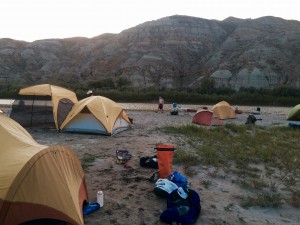
"Well, I guess you guys don't do anything halfway, eh?" Ski guide captured in a short exchange something I've known about myself for a long time. Something I haven't properly verbalized or really truly understood until this moment, late evening sun scorching our tanned, aching shoulders. Something that I know that is part of how Jon and I function -and have fun- as a couple. We're into big. Why try something small if you can do something big? To borrow a quote from Ray Bradbury: Why not jump off the ledge and build wings on your way down?
This very essence of living has fuelled me for most of my adult life. I often think of it as 'doing things the hard way' but I think a more accurate sentiment might be 'doing things the big way'. Taking big risks yields big rewards. Sometimes it also yields non-catasthopic failure (which I have believe breeds resiliency) while occasionally humiliating it is also hugely humbling, rewarding and driving. Why succeed a little when you can succeed hugely? Why fail small if you can fail big? If you have the guts and stomach to cope with the non-catasthopic failure, why not do things the hard way?
I'm back at the bike shop, speaking and I find it easy to reply after my brief mental interlude recalling canoe camping. I can think of dozens of other examples that come to mind, none of which I need to share with my new pal in the shop: being an entrepreneur, going after business, failing at projects, completing massive endurance events, the Backroads years, travel to third world countries. It's my cliff; it's my choice to build wings. I tell him I picked this because it scared me, and the training was humbling me. I told him it was a big event and I was up for it. He smiled.
This is how I like it: doing things the big way.

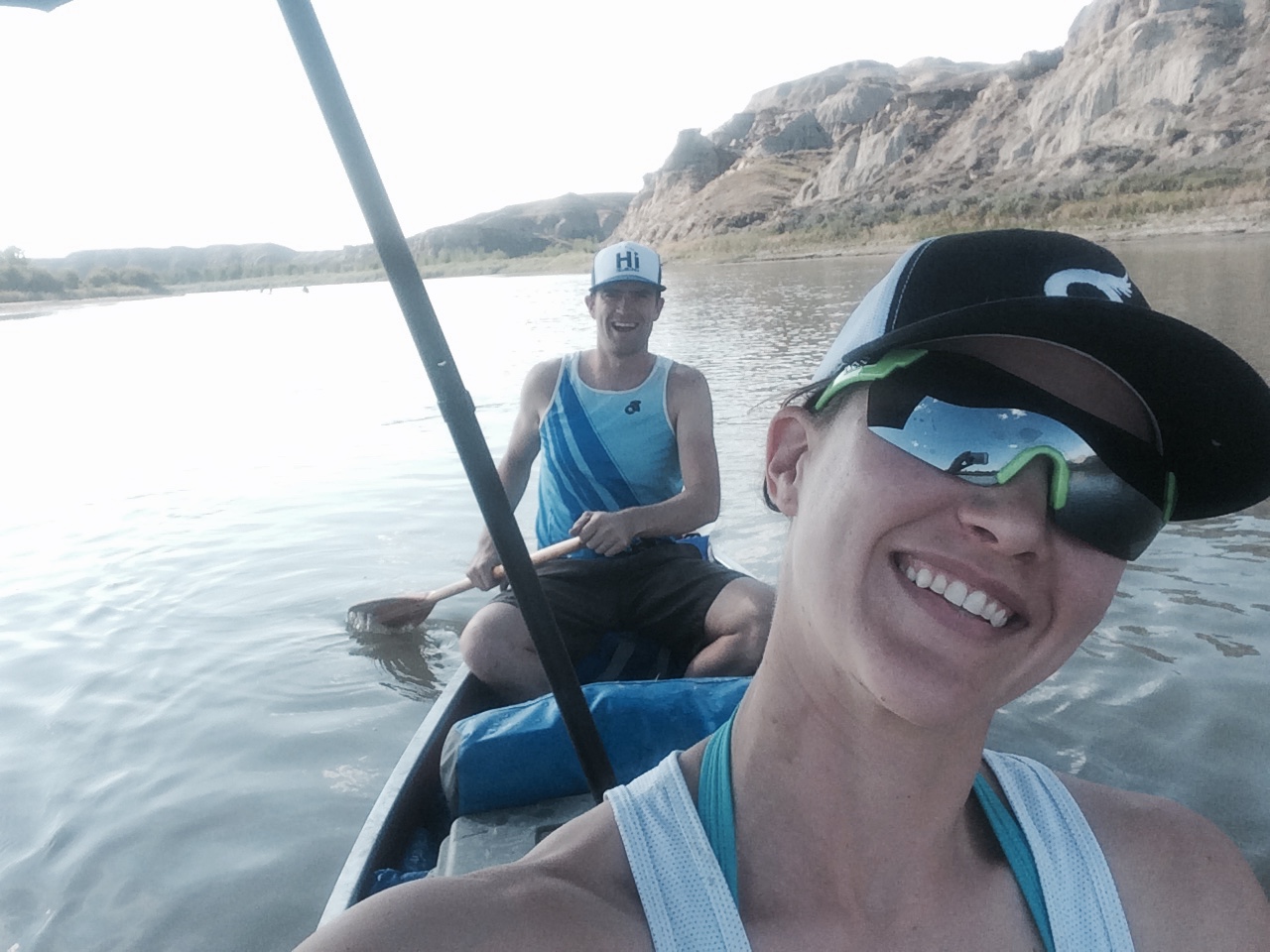
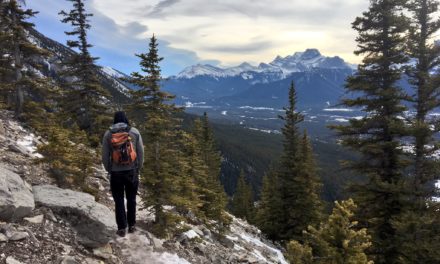
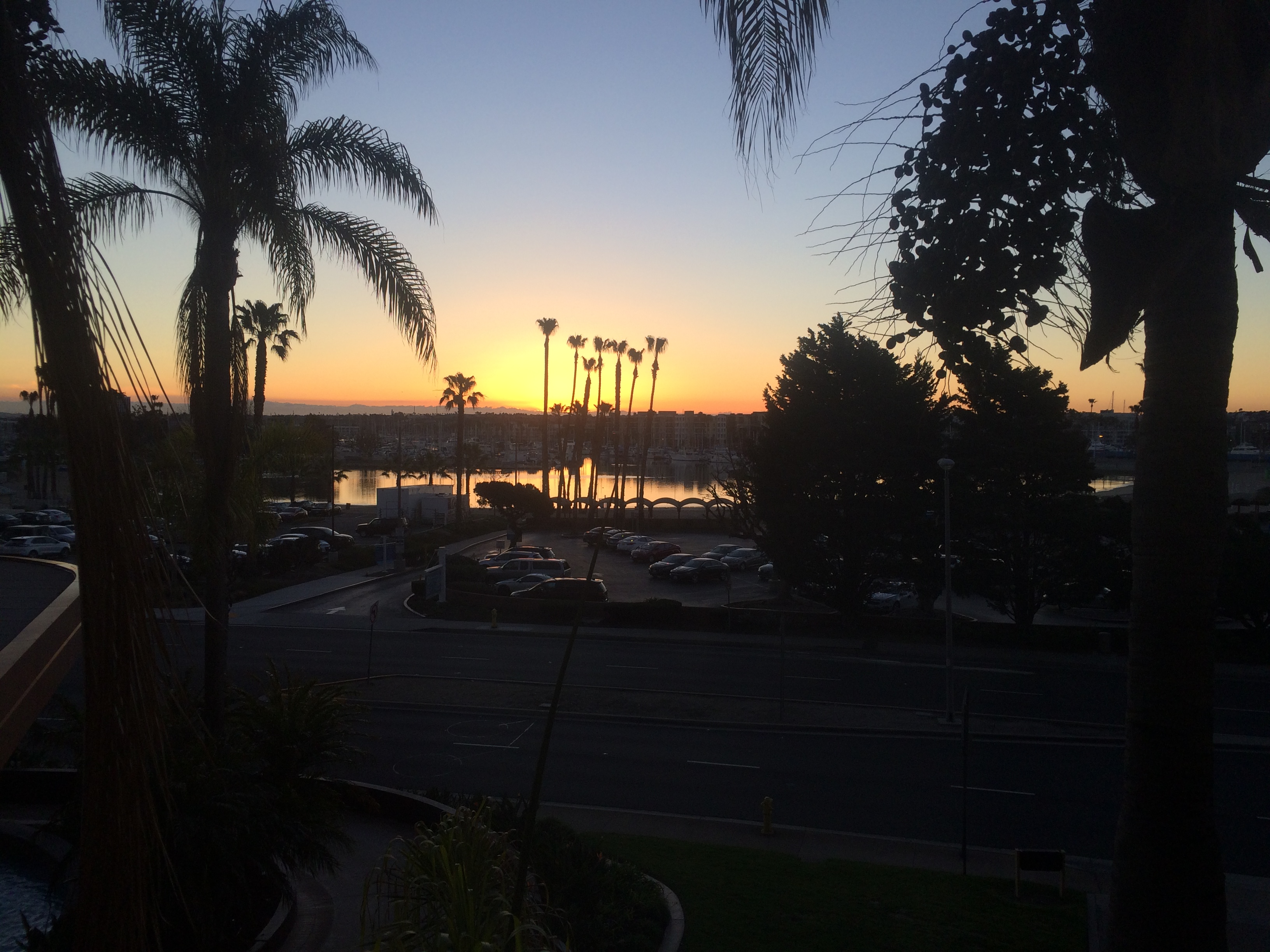
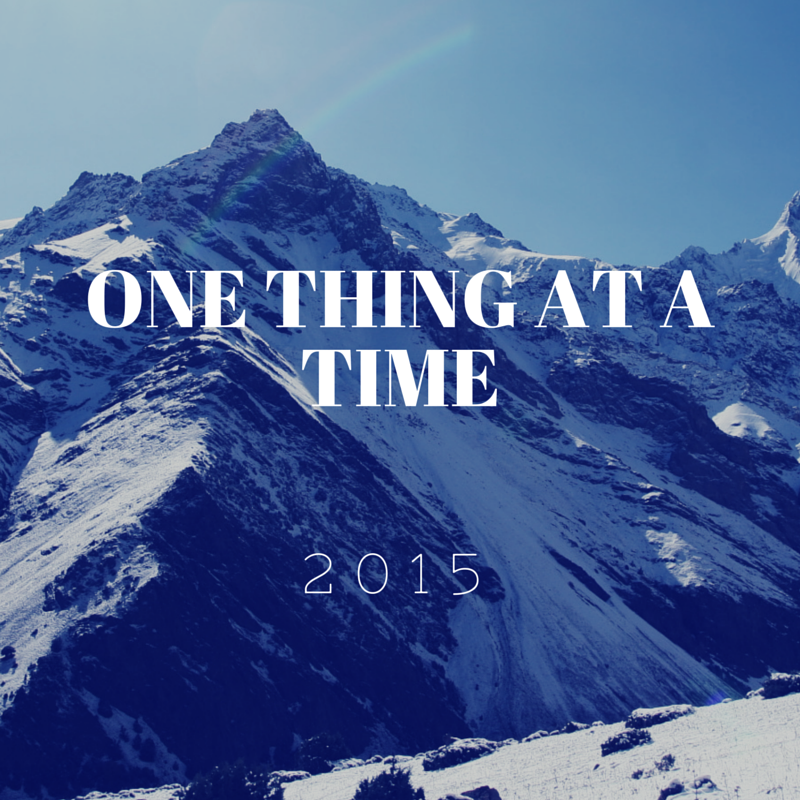
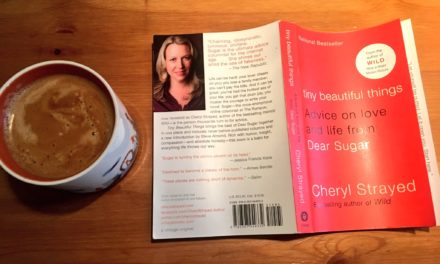
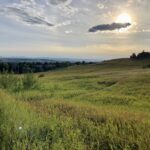


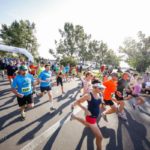

YES!!
Heck yes! Love this! As Jim Whittaker said: If you’re not living a life on the edge, you’re taking up too much space.
(Have you read his book A Life on the Edge? SO GOOD.)